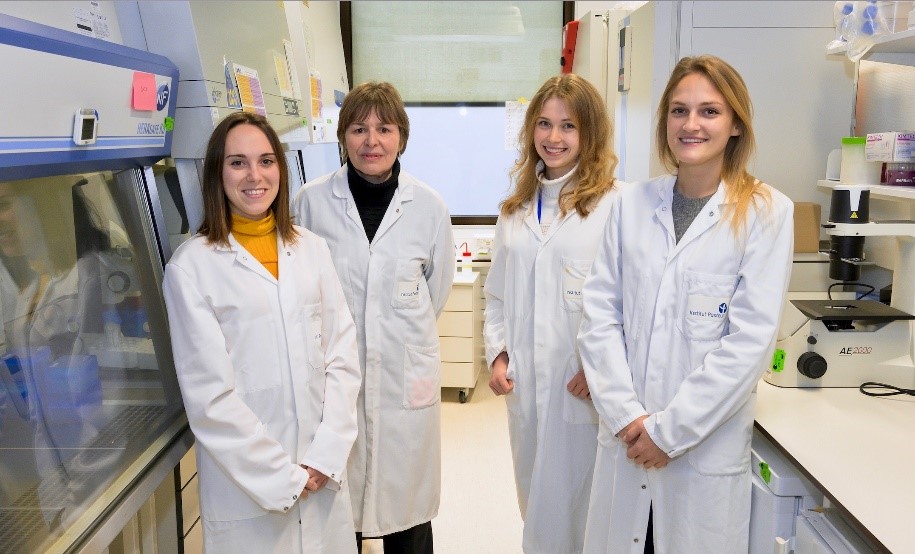
Doctor Isabelle Cloëz-Tayarani is a statutory researcher at Institut Pasteur, Paris. Specializing in basic research on Alzheimer’s disease, she leads a research group in the Integrative Neurobiology of Cholinergic Systems Unit. After studying Neurotoxicology in France and in the United States to obtain her PhD, she joined Institut Pasteur and carried out her research within different teams (neuropharmacology, cytokines and inflammation, human genetics and cognitive functions, etc.), supervising several PhD students. She has been the co-organizer of a Neuroscience course for several years at the Teaching Center of the Institut Pasteur, and has served as Deputy Director of the Department of Neuroscience.Her current research aims to develop a model of sporadic form of Alzheimer’s disease. The non-hereditary form of the disease represents more than 95% of patients with Alzheimer’s disease. An accumulation of the amyloid β peptide gradually leads to the formation of plaques between the neurons: the amyloid plaques. Understanding how the amyloid β peptide spreads in the brain of people with Alzheimer’s disease, deciphering the cellular and molecular events underlying this phenomenon, would make it possible to act before the appearance of clinical signs and thus defuse the mechanisms inducing the formation of amyloid plaques.
The Foundation is supporting her research project aimed at studying the role of a human cholinergic receptor (the alpha7-type nicotinic receptor) in the formation of amyloid plaques, through an experimental model developed in her laboratory. The project is based on the use of stem cells (pluripotent of human origin). The challenge is to accelerate the aging of neurons using specific factors, to mimic their true state in the brain and to understand molecular mechanisms in a suitable experimental context.
Project duration: 3 years.
Three PhD students are participating in this project. Camille Thiberge (on the right in the photo) is funded by the Alzheimer Research Foundation in the context of her PhD preparation.

The expected results are the precise identification of the interaction of the amyloid peptide with the alpha7nicotinic receptor in its various forms, which could be at the origin of the formation of amyloid plaques in elderly subjects. The model developed should make it possible to find ways of slowing the progression of Alzheimer’s disease with new molecules acting on this interaction, and at an earlier disease stage than the studies carried out up to now.
Articles sur la thématique :
2005 : U Maskos, BE Molles, S Pons, M Besson, BP Guiard, J-P Guilloux, A Evrard, P Cazala, A Cormier, M Mameli-Engvall, N Dufour, I Cloëz-Tayarani, A-P Bemelmans, J Mallet, AM Gardier, V David, P Faure, S Granon & J-P Changeux Recovery of nicotine reinforcement and cognitive functions by targeted expression of nicotinic receptors. Nature 436, 99-106.featured as a Faculty of 1000 paper



